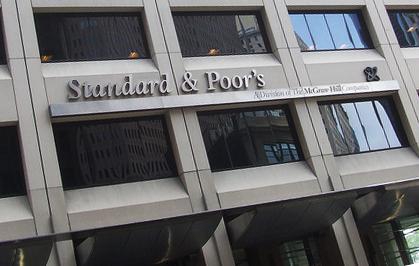A perfect storm

Poor old Michael Fish. When the sad day eventually arrives and the erstwhile BBC weatherman is whisked away to the great big spirit in the sky, passing through all those clouds, whose formations he spent so many long hours analysing, our Mick will be instantly recalled as ‘the weatherman who couldn’t even see a hurricane coming’. Fish’s failure, in 1987, to foresee what would be the worst storm to hit Britain for nearly 300 years will forever taint the thousands upon thousands of reasonably accurate predictions he made before and after his infamous faux pas.
A Meteorologist failing to spot the onset of a storm that would kill 18 and cause millions of pounds worth of damage is, to be generous, a little careless. Fish, however, can take solace from the events of 2007 when not one, but thousands of highly qualified so-called experts failed to spot a storm so destructive it would affect the entire planet, leaving hundreds of millions of citizens in varying degrees of peril and wiping out entire countries as we had hitherto known them. I refer, of course, to the global financial crash.
Since the epochal moment of Lehman Brother’s demise in October 2007, such has been the surfeit of ‘I told you so’ post-collapse commentators that were we able to convert them into pounds and cents the crisis could have long since been quelled. From the loquacious taxi driver to the embittered bar fly, everyone now, it seems, viewed the 2007 collapse as nothing other than inevitable.
But the truth is, it wasn’t the responsibility of cabbies and the drinking fraternity to see the crash coming; it was the responsibility, primarily, of the Credit Rating Agencies (CRAs). Established almost a century ago, CRAs have grown used to the idea of playing God with the welfare of, initially, individual companies and latterly, entire countries. Although there are several smaller outfits, the three that wield most power and influence are Moody’s, Standard & Poors and Fitch, and when the mood takes them, they aren’t afraid to flex their muscles.
In theory the CRAs carry out impartial, forensic checks on the credit-worthiness of companies, banks and Governments. After this exhaustive, agenda-free analysis is complete the CRA assigns the respective entity the grade it deems most appropriate, ranging from its highest AAA to its lowest C (effectively junk status). At least, that’s the theory…
In practice, however, a combination of vested interests and downright incompetence has seen some pretty dubious grading. Being funded by the very organisations they exist to assess, it would take a superhuman leap of faith to believe the CRAs exercise even a reasonable level of objectivity. How else to explain their failure to spot the largest Ponzi scheme in history, the subprime mortgage shambles? How to explain the AAA rating Enron enjoyed up to four days before its collapse in 2001? How to explain the myriad other ways in which the CRAs have shown themselves to be wholly incapable of justifying their raison d’etre?
Compromised and questionable decision-making doesn’t complete the CRA profile either. A more sinister characteristic was exposed in 2004 when Moody’s assigned German insurance firm Hannover Re an unofficial junk rating when the company refused to pay the agency for an official rating. No matter that Hannover were in rude health at the time, the mud from Moodys stuck and the firm lost $175 million in market capitalisation. Replace ‘rating’ with ‘protection’ and you have a Sopranos plotline.
There has been much discussion and debate about what to do with CRAs, with suggestions ranging from alternative funding to opening up the market to other smaller operations. Surely the answer is far simpler - ignore them. So inaccurate have their assessments been, the credibility of the CRAs is on the floor. Besides, if credit analysts and independent auditors do their jobs properly why do we need CRAs? It’s highly debatable whether any entity should have the power to effectively topple governments (Italy and Greece) or play an influential hand in events that lead to a country forfeiting its sovereignty (Ireland). But if such an entity must exist it should not be a CRA. In their current guise. CRAs do little more than add a dubious legitimacy to what has become an ungovernable industry, like a lawless town hiring the Hell’s Angels to keep the peace.
Were corporations and governments to withdraw funding and adopt a blanket indifference to the CRAs they would soon lose their potency. The rating agencies can’t give everyone junk status, and even if they do, who would still take them seriously? At this stage any accurate assessments the agencies make amount to little more than a legitimate cry of ‘wolf’. And if we still need a lookout to spot the next perfect storm there’s a former BBC weatherman with plenty of time on his hands these days who would probably be just as effective.
Image top: haydn.
